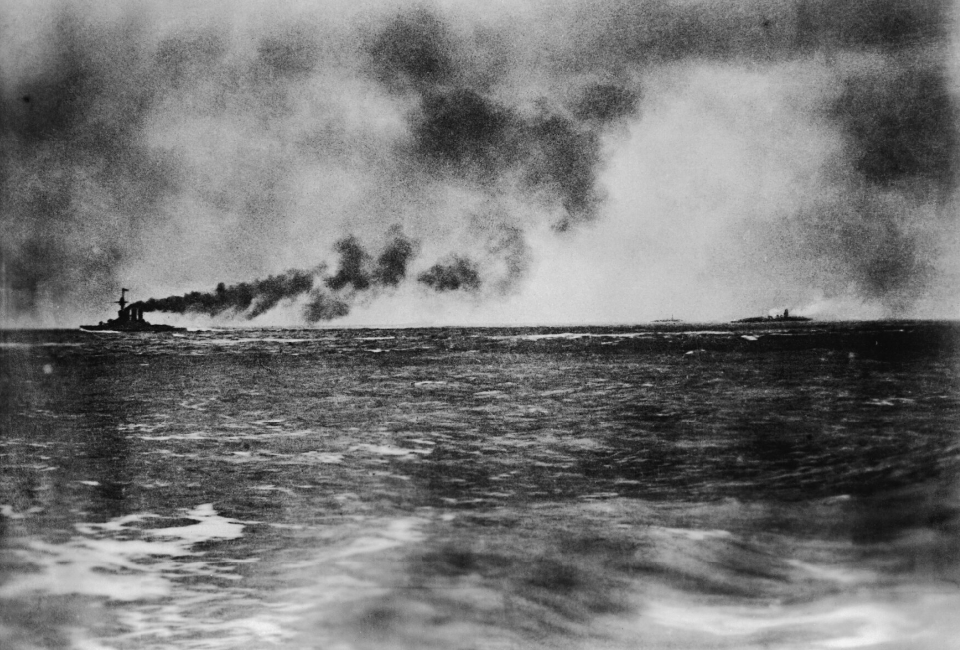Beating away from the lee shore of Jutland (part 2)
Posted By James Goldrick on June 1, 2016 @ 06:00

Jutland veterans were not alone in their experience of failure and feelings of regret after the First World War, nor in their desire to get the Royal Navy back on track. Andrew Cunningham, later to achieve fame as the wartime C-in-C of the Mediterranean Fleet, was present, commanding the destroyer Scorpion, when Rear Admiral Troubridge refused action with the German battle cruiser Goeben in August 1914. That was an episode on which the entire navy looked with shame and which clearly marked Cunningham. An officer who was a captain in 1918 wrote that the Royal Navy had ‘an insufficient insistence on the imperative need of really coming to grips.’ This summed up the attitude of many thoughtful officers.
The retrenchments of the 1920’s were dead hands on any initiative that required financial resources. But there were increasingly well-coordinated efforts to improve, which gained momentum in the following decade. The influence of officers who had direct experience of their seniors’ failures (and, perhaps, their own) was important. The Tactical School was a key innovation. There was a healthy dialogue, including the regular publication of ‘Progress in Tactics’ with the results of exercises and trials. What also helped was a growing realisation that the Royal Navy wouldn’t necessarily enjoy technological superiority over its opponents. That placed a premium on identifying tactics which would minimise British disadvantages.
Another vital element was the selection of officers for the most senior seagoing ranks. The reductions of peace meant the Admiralty one priceless advantage—it could be highly selective. No matter how brilliant the specialist officer, nor how significant their staff or ship service, all were placed under a microscope. The weight given to proven initiative was clearly considerable. The promotions to Vice Admiral on the active list between 1934 and 1936 show what happened. Of 15 officers, nine had been awarded the Distinguished Service Order (DSO) and, of these, three had earned it in submarine command and three in destroyers. Rear Admirals of the same seniority tell a similar story—four submariner and four destroyer DSO’s out of a total of 28 officers, 12 of whom had the award. They would be the senior commanders of 1939–45.
Risk taking in battle tactics was accompanied by a willingness to take risks with ships in exercises, a willingness that may have grown as the battle hardened reformers reached flag rank. The wider attitude being engendered was summed up by Admiral Sir William Fisher’s response to frank admission of fault by Captain Philip Vian (of later Altmarck and Bismarck fame) in a berthing accident: ‘I was told to be more careful in future, but the Commander-in-Chief added a paragraph in the sense that he had liked the manner of the confession.’ Andrew Cunningham wasn’t alone when he asserted, after a collision during manoeuvres, that broken eggs are inevitable in making an omelette.
There were misdirections. Whatever the benefits of games for ship spirit and individual fitness, there were excessive claims about the relationship between sport and fighting instincts—and perhaps too much effort devoted to competitive inter-ship sport, as opposed to encouraging group activity. Safety also sometimes exerted too strong an influence. Night operations by submarines were almost non-existent and restrictions on their interaction with surface forces created tactical unrealities.
Unanimity on the subject of command and control was not complete. There was a fissure over the role of staffs. Much commentary has been devoted to the problem of over-centralisation within staffs and commanders who attempted to do too much themselves. But an equal problem, arguably one that has continually dogged the Royal Navy (and other navies) in the years since the Grand Fleet, was that of over-centralisation into staffs and their misemployment on nugatory work, particularly that of minding the individual business of worked-up ships, rather than thinking creatively about tactics, operations and war.
Despite this, by 1939, the Royal Navy had successfully learnt most of the lessons needed to achieve effective remote coordination of operations at sea and the associated exercise of local initiative. Thus, when three cruisers under Commodore Henry Harwood encountered the pocket battleship Graf Spee off the River Plate in October 1939, the British had set the conditions for the encounter. Harwood had considered and gamed—imaginatively—the problem and knew what to do. Like Waterloo, it was a ‘damned nice thing, the nearest run thing you have ever seen in your life.’ But the Graf Spee suffered critical damage and was driven into harbour, from which she would emerge only to be scuttled. Afterwards, the First Sea Lord, Dudley Pound, wrote to Harwood to declare that he had set the standard for the war to come, a matter which Pound felt was of ‘great importance.’ Pound emphasised not only that Harwood had acted correctly, but that he would have been right to engage the Graf Spee even if his entire force was sunk in the attempt.
An Australian element provides a final example. In the Mediterranean in July 1940, Captain John Collins, the product of service and training in both the RAN and RN, decided on his own initiative to reposition his ship, the light cruiser Sydney, by more than fifty miles, keeping radio silence to maintain surprise. The result was the rescue of a group of embattled British destroyers and the destruction of the Italian light cruiser Bartolomeo Colleoni. The exchange with Cunningham, the C-in-C, after Sydney returned to harbour is significant on both sides. When asked what made him move without orders as he did, Collins jokingly replied ‘Providence guided me, Sir’. To which Cunningham said, ‘Well in future you can continue to take your orders from Providence’.
Balance had indeed been restored, but are we balanced now?
Article printed from The Strategist: https://www.aspistrategist.org.au
URL to article: https://www.aspistrategist.org.au/beating-away-lee-shore-jutland-part-2/
Click here to print.